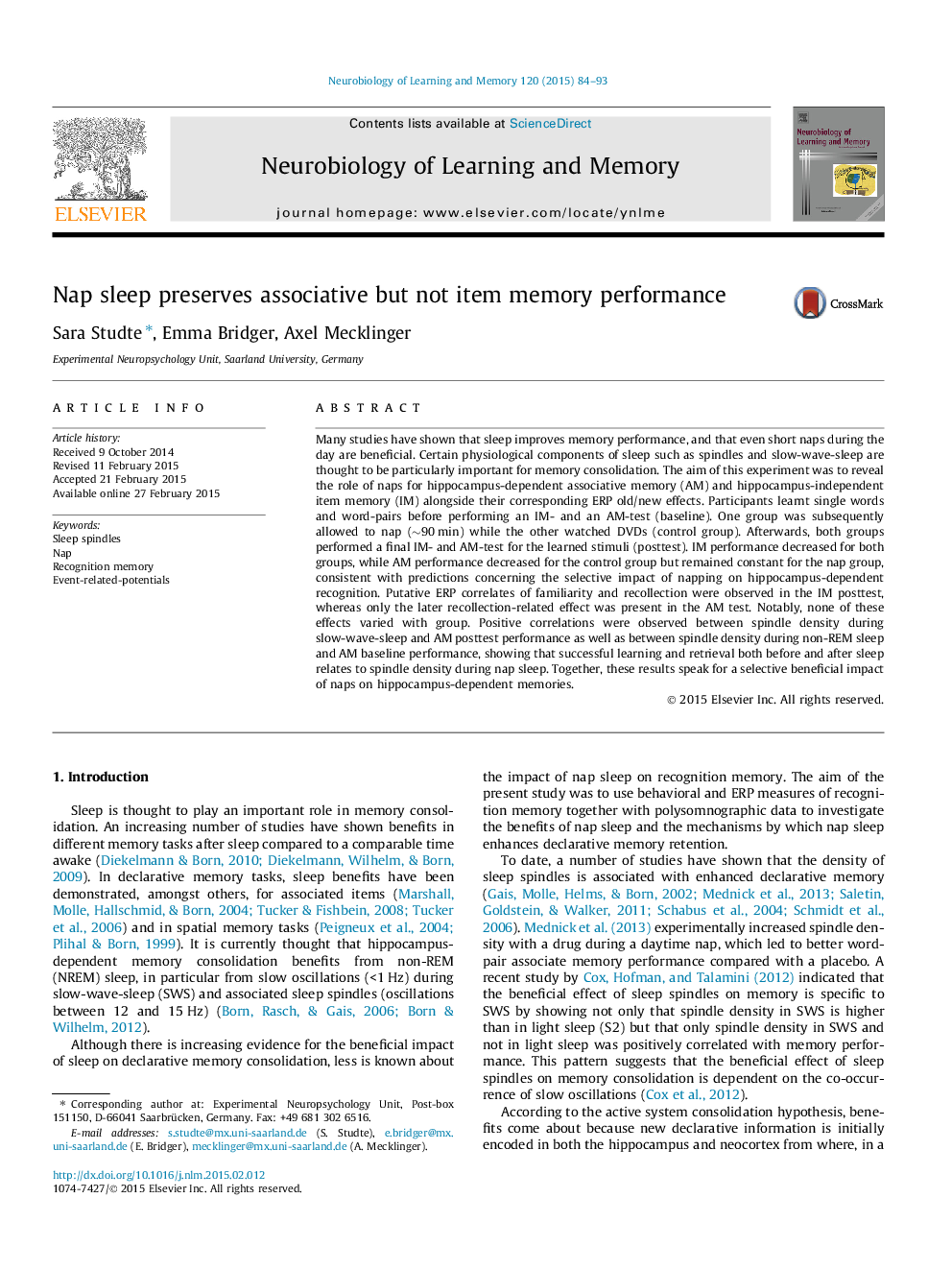| Article ID | Journal | Published Year | Pages | File Type |
|---|---|---|---|---|
| 936531 | Neurobiology of Learning and Memory | 2015 | 10 Pages |
•Selective nap sleep benefit for associative but not item memory performance.•Spindle density in SWS is correlated with post-sleep associative memory performance.•Spindle density (NREM) is correlated with pre-sleep associative memory performance.
Many studies have shown that sleep improves memory performance, and that even short naps during the day are beneficial. Certain physiological components of sleep such as spindles and slow-wave-sleep are thought to be particularly important for memory consolidation. The aim of this experiment was to reveal the role of naps for hippocampus-dependent associative memory (AM) and hippocampus-independent item memory (IM) alongside their corresponding ERP old/new effects. Participants learnt single words and word-pairs before performing an IM- and an AM-test (baseline). One group was subsequently allowed to nap (∼90 min) while the other watched DVDs (control group). Afterwards, both groups performed a final IM- and AM-test for the learned stimuli (posttest). IM performance decreased for both groups, while AM performance decreased for the control group but remained constant for the nap group, consistent with predictions concerning the selective impact of napping on hippocampus-dependent recognition. Putative ERP correlates of familiarity and recollection were observed in the IM posttest, whereas only the later recollection-related effect was present in the AM test. Notably, none of these effects varied with group. Positive correlations were observed between spindle density during slow-wave-sleep and AM posttest performance as well as between spindle density during non-REM sleep and AM baseline performance, showing that successful learning and retrieval both before and after sleep relates to spindle density during nap sleep. Together, these results speak for a selective beneficial impact of naps on hippocampus-dependent memories.
